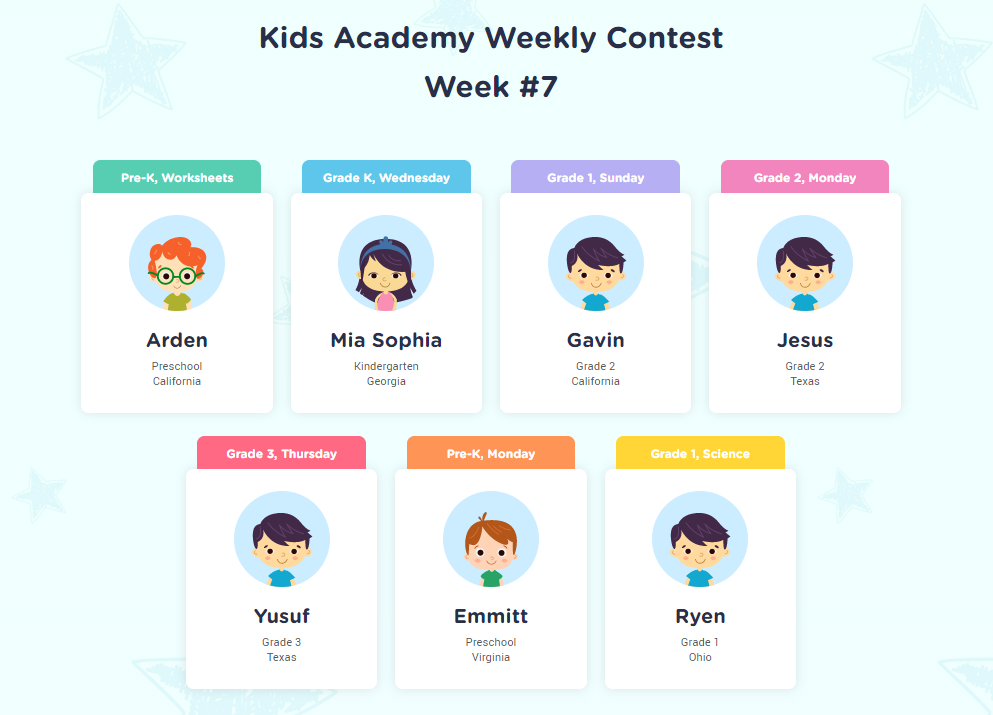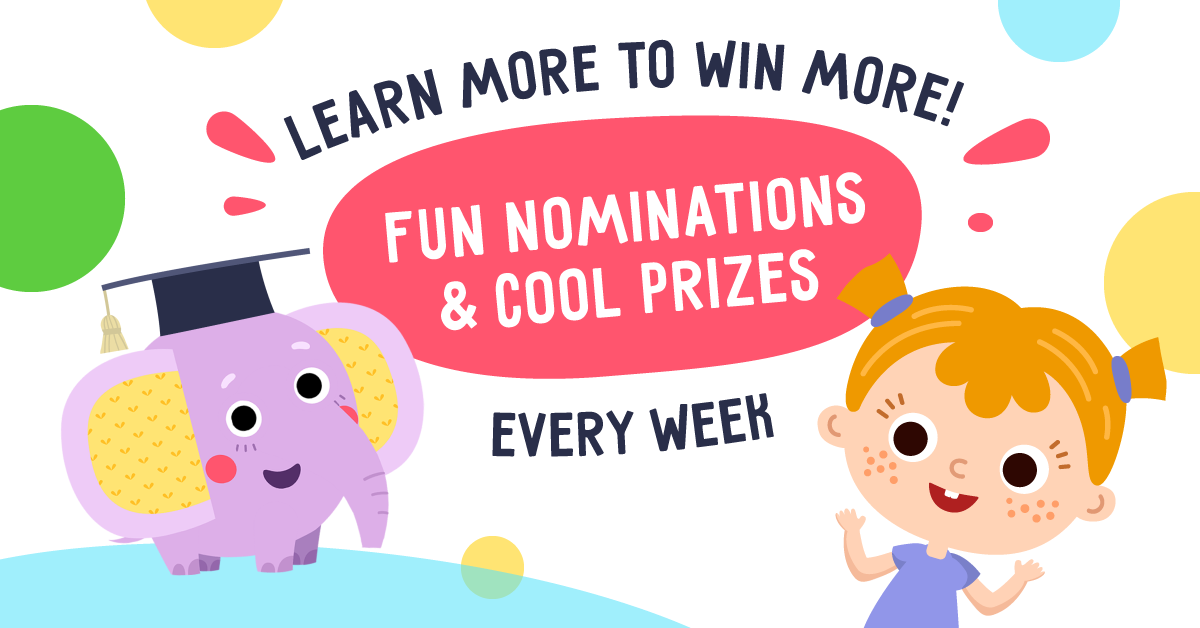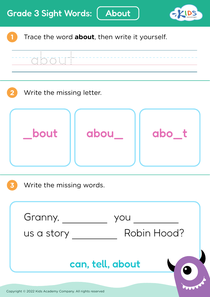Integration of Knowledge and Ideas worksheets for Grade 3
6 filtered results
-
From - To
Enhance your third graders' reading comprehension with our Integration of Knowledge and Ideas worksheets! Designed to align with Common Core standards, these engaging resources focus on developing critical thinking skills by teaching students to analyze and synthesize information from multiple sources. Each worksheet encourages students to compare and contrast information, explore themes, and understand character motivations. With stimulating activities, your young learners will be excited to dive deeper into literature and make meaningful connections between texts and visual information. Visit our collection to access vibrant, printable worksheets that facilitate learning while making reading an enjoyable experience! Perfect for enrichment or homework.
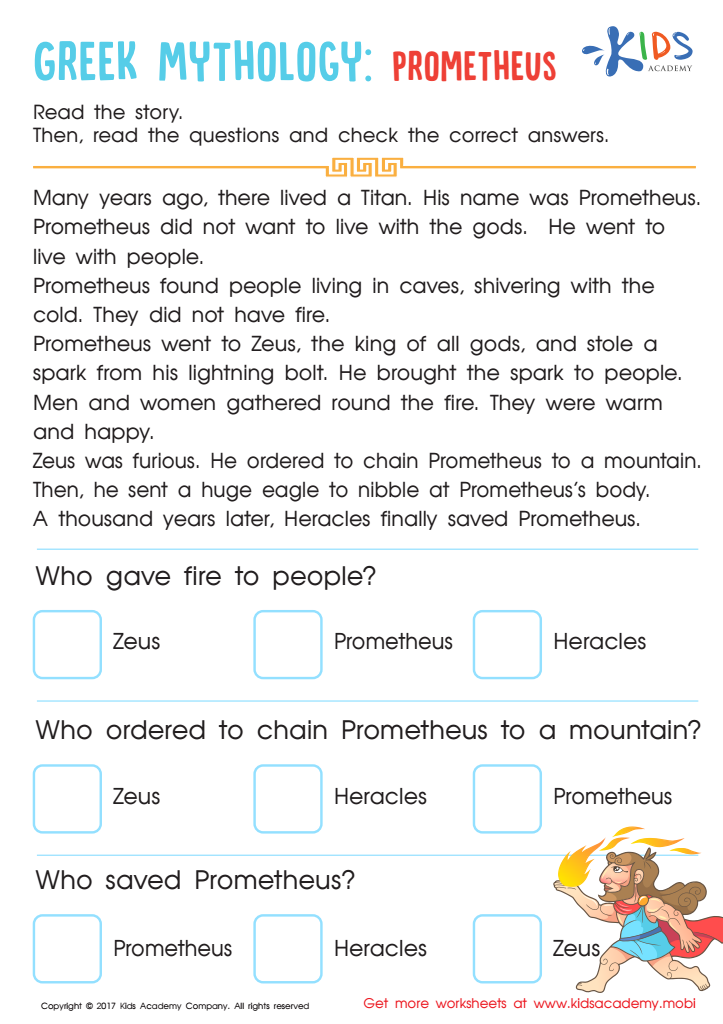

Prometheus Story Worksheet
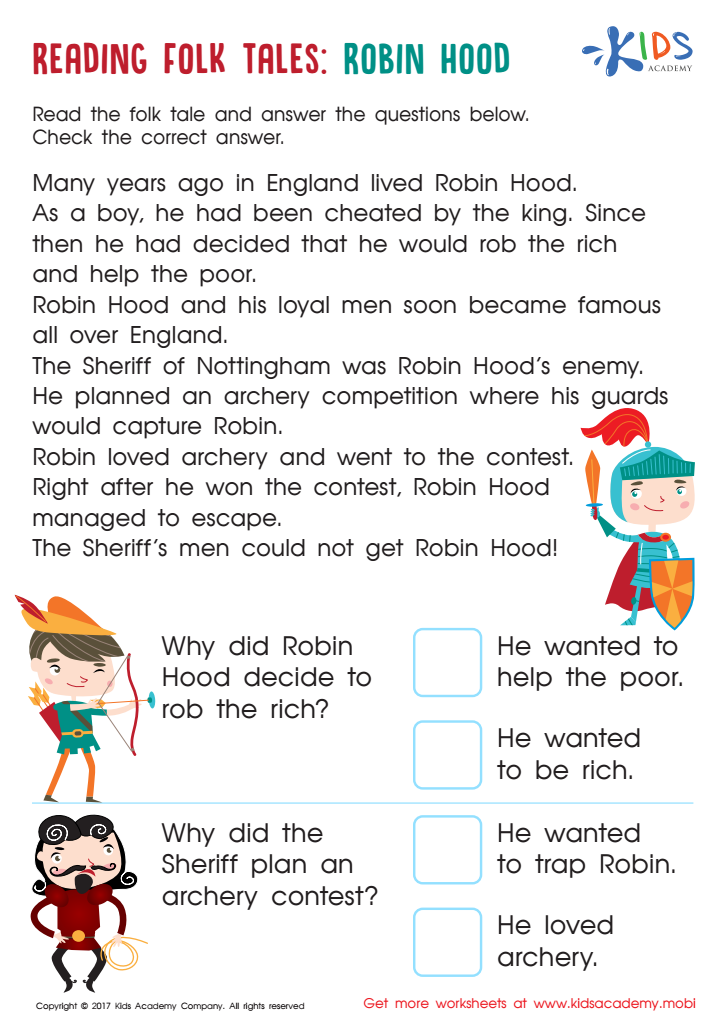

Robin Hood Folktale Worksheet
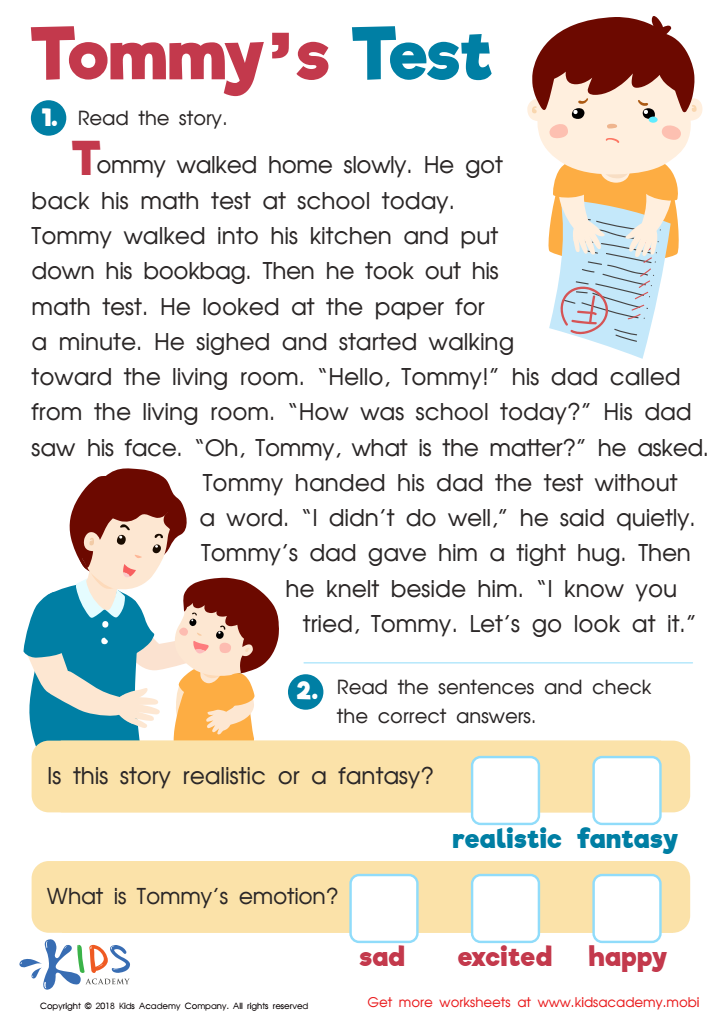

Tommys Test Worksheet
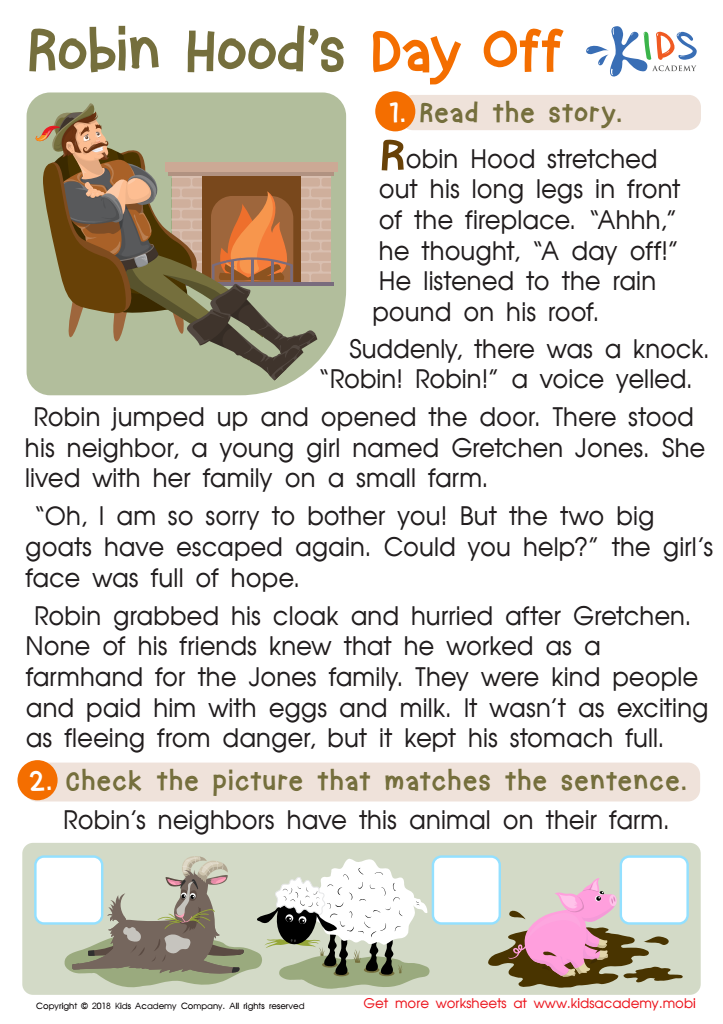

Robin Hood's Day Off Worksheet
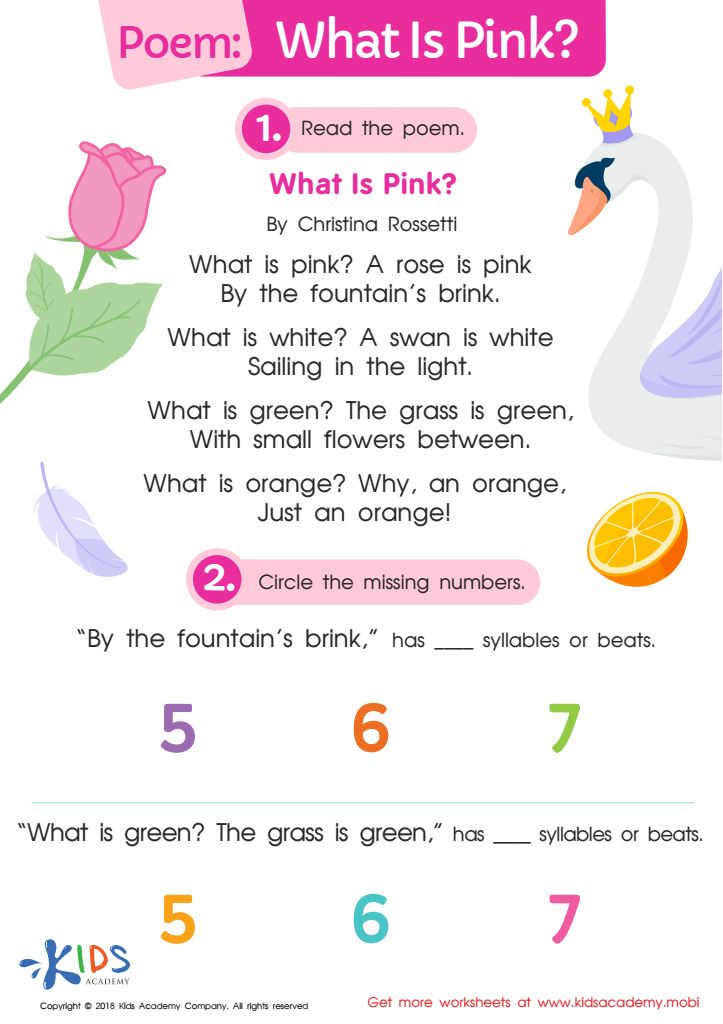

Poem: What Is Pink? Worksheet
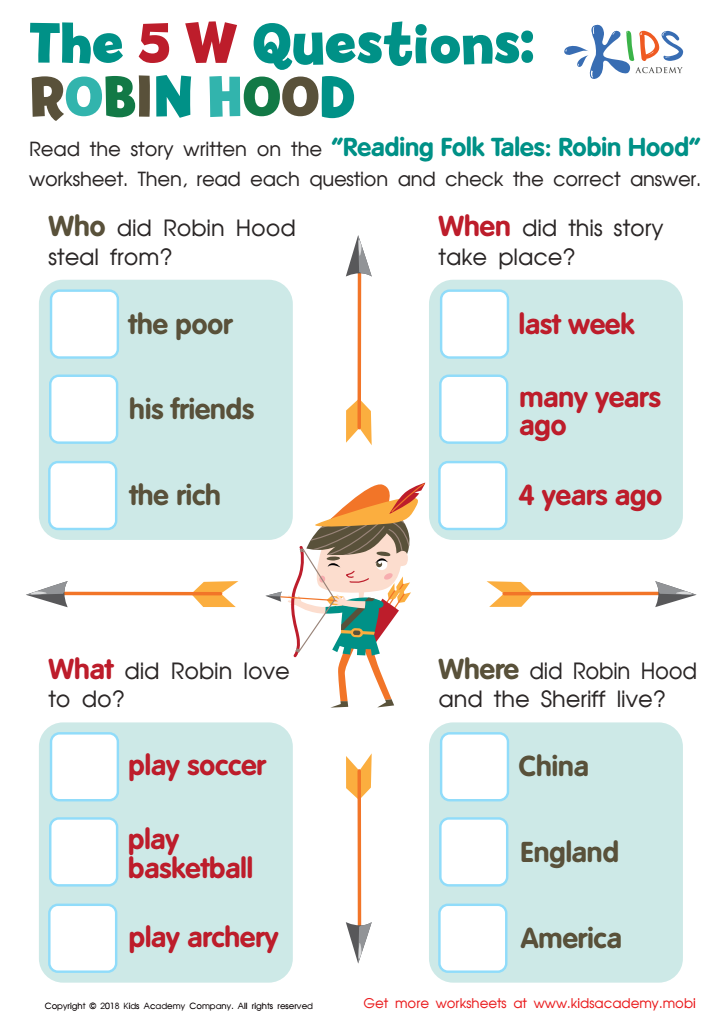

The 5 W Questions: Robin Hood Worksheet
Integration of Knowledge and Ideas is a crucial skill for Grade 3 students, as it helps them make meaningful connections between different ideas and subjects. At this stage, children are transitioning from learning to read to reading to learn. By integrating knowledge from various sources, they develop critical thinking skills, enhancing their ability to analyze information and form well-rounded opinions.
For parents and teachers, fostering this integration enriches a child's educational experience. It encourages them to draw connections between subjects, like relating a historical event in a story to a science concept they are studying, which promotes retention and understanding. Moreover, this skill prepares students for more complex learning in higher grades, setting a foundation for academic success.
Additionally, when children learn to integrate ideas, they become better collaborative learners. They can share insights and perspectives with peers, strengthening social and communication skills. By valuing this skill, teachers and parents can create a supportive learning environment that nurtures curiosity and creativity. Ultimately, caring about the integration of knowledge and ideas not only supports academic growth but also helps children develop a more holistic view of the world around them, fostering lifelong learning and adaptability.
 Assign to My Students
Assign to My Students




